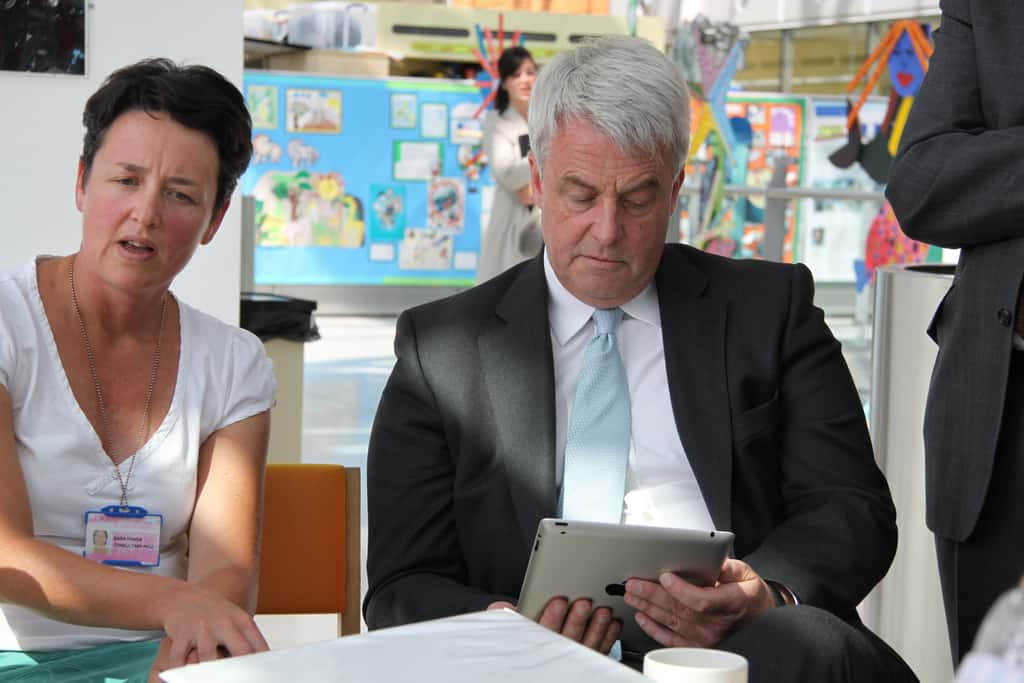
Government sets out new information strategy for NHS
pharmafile | May 22, 2012 | News story | Medical Communications, Sales and Marketing | GPs, Lansley, NHS, digital, government, reforms
The Department of Health has outlined its plan for greater use of information technology in the NHS in a bid to help improve services for patients.
More data about NHS and social care services is to be published online in areas like success rates for treatment and infection control, which should in turn help patients choose services or better manage their own health.
The thinking makes sense: bringing the proven popularity and convenience of online services such as shopping and banking, to a sector which the internet has so far pretty much passed by.
The government says there is still a “full commitment to preserving face-to-face contact with health and care professionals as an essential, core part of care, while simplifying services for most people”.
“Our plans will ensure that they get this from their doctors as well as online from websites and cutting edge apps,” said health secretary Andrew Lansley.
People have been able to post comments and ratings for hospitals on the NHS Choices website since 2008, in the same way as they might rate a holiday or hotel on other consumer sites.
But the new information strategy for health and care goes much further, opening up information to consumer groups and non-NHS IT specialists so they can produce some of the websites and apps Lansley is talking about.
The government says it expects to see new products and services being offered to patients. “The power of information: Putting all of us in control of the health and care information we need” says this means information will be easier to understand, easier to access and thus drive up standards of care.
However, the King’s Fund urged caution, saying that NHS providers already have quite a bit on their plates.
The think tank’s senior fellow Dr Veena Raleigh welcomed the “bold and ambitious” plan, but added: “We need to be realistic about what is achievable in the short to medium term.”
“At a time of unprecedented financial constraint, some commissioners and providers will find it challenging to invest in developing information systems rather than frontline services,” she said.
The government also insists that by 2015 patients will be able to email GP surgeries, book their GP appointments online, order repeat prescriptions, access test results and see their medical records.
“It’s time to make patient-power a reality and take the hassle out of using the health service,” insisted Lansley.
“Our health and care reforms are about making life easier for people. If people are going to be able to choose, with their doctor, which hospital will provide them with the best care they will need all the latest information,” he added.
Some of the NHS’s online ventures have been seen as successful: for instance, academic research suggested the NHS Choices site is in fact quite an accurate measure of hospitals’ performance, with better subjective ratings reflecting objective performance on lower death and readmission rates, and on cleanliness.
Midwives in Portsmouth have been using digital pens to write up case notes – information which is automatically uploaded onto patients’ records, halving paper work.
But there is a question mark over whether the government strategy can be fully implemented, since the NHS has a chequered history with IT.
A scathing report from the National Audit Office (NAO) last year said that its plans for electronic patient records were in tatters, for example.
Originally every patient in England was to have an electronic care record by 2010, but the NAO said that even by 2016 all the necessary systems may now not be in place.
The £11.4 billion National Programme for IT in the NHS (NPfIT) has repeatedly hit hurdles since its launch in 2002, dogged by missed deadlines, poor value for money and a lack of direction.
“The goal of linking health and social care records is the right one and is vital for facilitating integrated care to meet the needs of older people and those with chronic conditions,” Raleigh said.
“However, while there are some outstanding examples of linking records across services to draw on, implementing this on a national scale raises technical and financial challenges and much will depend on the pace and scale of local take up,” she concluded.
The government confirmed the momentum for improving access to patient-related data online would be led locally.
The Royal College of GPs has agreed to work with patient groups to lead on supporting people to access services and their records electronically – and from next year the NHS Commissioning Board will be asked to help promote this work.
Sir David Nicholson, chief executive of the Board, said the new information strategy “are the first steps in a genuine cultural shift in the NHS that will enable the service to work at its most efficient and give patients real power and choice”.
Adam Hill
View the video below for more:
Related Content

Digital mental health technologies – a valuable tool in supporting people with depression and anxiety
The potential benefits of digital mental health technology for managing depression, anxiety and stress, together …

A community-first future: which pathways will get us there?
In the final Gateway to Local Adoption article of 2025, Visions4Health caught up with Julian …

The Pharma Files: with Dr Ewen Cameron, Chief Executive of West Suffolk NHS Foundation Trust
Pharmafile chats with Dr Ewen Cameron, Chief Executive of West Suffolk NHS Foundation Trust, about …






